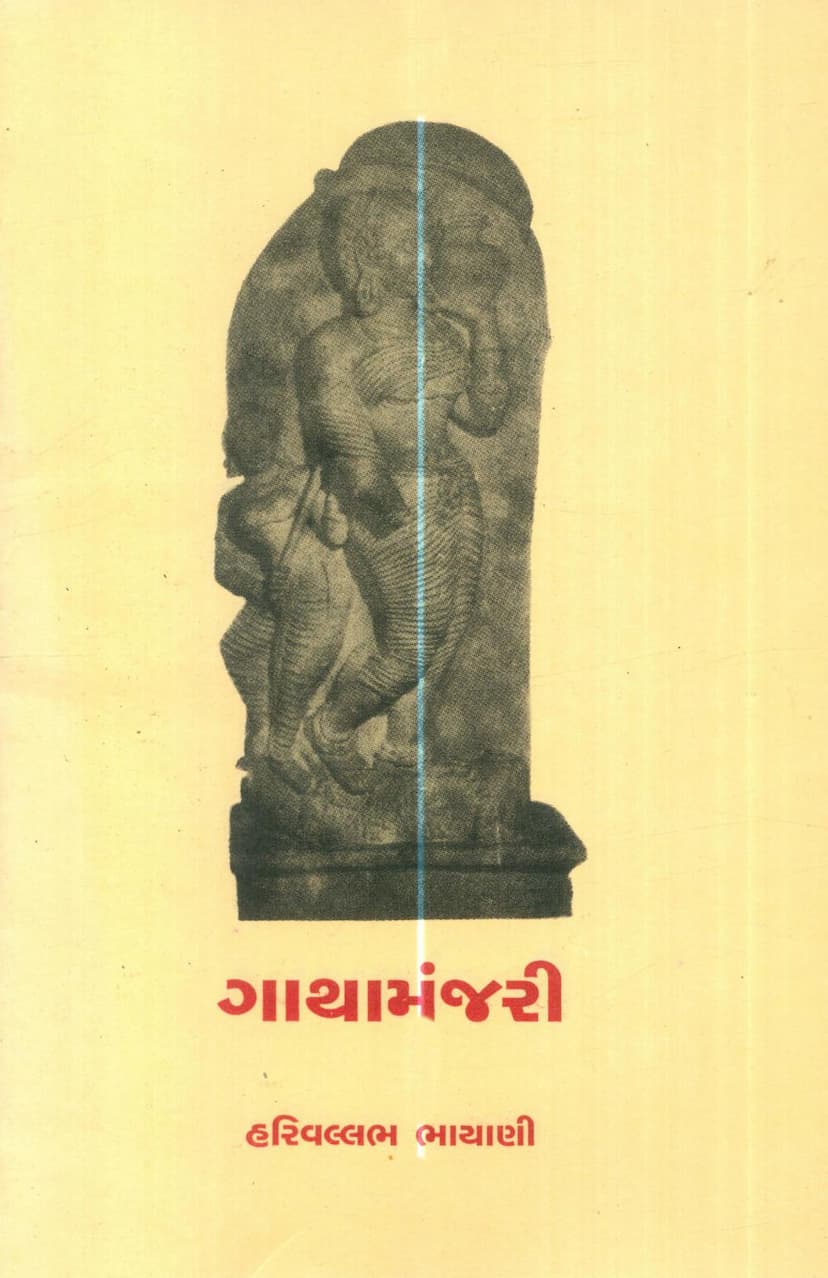Gatha Manjari
Added to library: September 1, 2025
Loading image...

Summary
This document is about the book "Gatha Manjari" by Harivallabh Bhayani, published by S. S. Singhvi. It is a Gujarati translation of 100 selected verses from Hāla's Gathākośa (Gāthāsaptaśatī), a renowned collection of Prakrit muktaka (independent verses).
Here's a breakdown of the key information:
- Book Title: Gatha Manjari (ગાથામંજરી)
- Author/Translator: Harivallabh Bhayani (હરિવલ્લભ ભાયાણી)
- Publisher: S. S. Singhvi (એસ. એસ. સીંઘવી)
- Foundation: Parshwa International Foundation for Research and Education (પાર્શ્વ સંશોધનાત્મક અને શૈક્ષણિક ગ્રંથમાલા / Parshwa International Foundation for Research and Education)
- Content: The book contains a Gujarati translation of 100 selected verses from Hāla's Gathākośa. These verses are classified by subject matter. The book also includes an introduction on the nature, character, scope, and literary worth of muktaka poetry, along with a brief historical note.
- Relationship to Previous Work: This is a continuation of Bhayani's earlier work, "Gathamadhuri" (ગાથામાધુરી), published in 1976 and re-issued in 1990, which contained translations of 275 verses from the same collection with original text and an introduction.
- Introduction (Prastavana - પ્રસ્તાવના): The extensive introduction discusses:
- The nature and types of muktaka poetry.
- Its characteristics like "muktatā" (independence), "lāghav" (brevity), "chitrātmakatā" (pictorial quality), and "dyotakatā" (suggestiveness).
- The themes and subjects covered in muktaka verses.
- The origins and evolution of muktaka collections, mentioning Sanskrit examples like "Amarushataka" and "Bhartrihari's Shatakas," as well as Prakrit collections like "Gathakosha" and "Vajjālagga."
- A detailed discussion on Hāla, the compiler of "Gathakosha," his life, and the significance of his work.
- The subject matter of "Gathakosha," highlighting its focus on love poetry, nature poetry, and everyday life.
- The use of alankaras (figures of speech) and the depiction of rural life.
- The gatha meter and its importance in Prakrit literature.
- The nature of the Prakrit language used in these verses.
- The literary style, which is described as "vidagdha" (learned and refined).
- The readability and aesthetic appeal of the verses, suggesting a connection to later Indian poetic traditions like Hindi's Ritikāl and even Japanese Haiku.
- Translated Verses: The book presents the original Prakrit verses along with their Gujarati translations, categorized under various themes such as:
- Devastuti (praise of deities)
- Seasons (Vasant, Grishma, Varsha, Hemant)
- Love (Sanyog - union, Viraha - separation, including various stages like Darshan, Sparsh, Chumban, Smaran, Surat, Rup, Gunavanti, Abhisar, Duti, Maniti, Maan, Rusanu, Aparadh, Anunay, Sheetlavati, Diyar-Bhabhi, Asati)
- Other themes like Anayokti (allegory), Subhashita (wise sayings), Shaurya (valor), Pauranik (mythological), and Prakirna (miscellaneous) including Jeevan Darshan (philosophy of life) and Sambodh (exhortation).
- Author's Expertise: Harivallabh Bhayani is recognized as a distinguished scholar of Indian classical languages and literatures, with a significant body of translation work in Gujarati.
- Purpose: The book aims to make these significant Prakrit verses accessible to Gujarati readers, providing insights into their literary and cultural context.
In essence, "Gatha Manjari" is a scholarly and accessible presentation of a selection of classical Prakrit love and nature poetry, translated and contextualized by a renowned scholar, offering a glimpse into the rich literary heritage of ancient India.